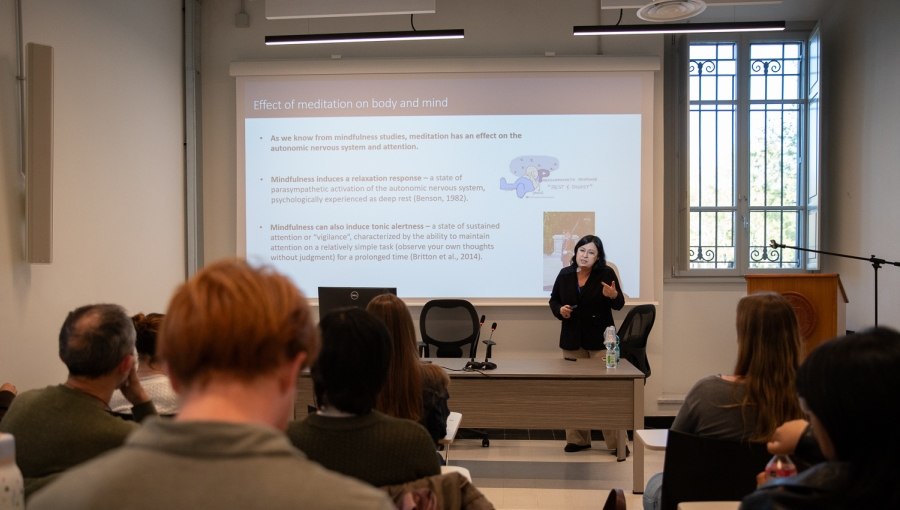Meenasarani Linde Murugan Discusses Black Orientalism at JCU
On March 13, 2017 the Department of Communications hosted a lecture by Meenasarani Linde Murugan on black orientalism and postwar music on television. Dr. Murugan is an Assistant Professor at Fordham University in the Department of Communication and Media Studies. Her main research interests are TV, gender, race, media, transnationalism, and fashion.
Introduced by Professor Tijana Mamula, Professor Murugan presented part of her new research project (tentatively titled An Exotic Pipedream: Reorienting Early Television History) examining representations of exoticism in US postwar television with a focus on variety performances of music, dance, and comedy. She focused on television’s commercial emergence to explore how the technology’s dynamics of transmission blur distinctions and borders.
Exoticism is defined as the quality of being attractive or striking through being colorful or unusual. Murugan focused her research on how exoticism navigated the gulf between “the other” being presented as a distant stranger as well as an intimate guest in the home. This exoticism, though omnipresent in US culture, has been largely unexplored in postwar TV. She recovered these performances of exoticism and put them in dialogue with the perception of popular culture. As a result, the tension at the heart of this persistence of exoticism on TV emerged.
Variety television was central to visualizing and refashioning the global community of gendered racial diversity that was predicated on a visual cultures derived from colonial imaginaries. Through a close analysis of costume, music, and dance in variety show performances, Murugan argued that while exoticism furthered the colonial dynamics between people, it also offered space for diverse performances.
The first part of her research deals with print media and films from 1930s and 1940s and it analyzes the exoticization and racialization of TV harnessed by networks to market entertainment capacities. The second half of the project focuses on performances of dance and music on variety show, in order to analyze performers’ negotiations of exoticism. Murugan investigates how the desire for exoticism gave opportunities for black women choreographers and dancers and examines how performances of black orientalism via music on television impacted the racialization of south Asians within and beyond the US. At the heart of this study lies the concept of black orientalism, which “encompasses a range of black imaginings of Asia, that are in fact negotiations with the limits, failures, and disappointments with black citizenship.” The black imaginings of the orient are often indistinguishable from white colonial iterations of orientalism, yet sometimes they take on a critique of racism, empire, and colonialism opening up a space for interracial solidarity.
Through the use of specific examples of music and dance, Murugan presented her argument on black orientalism and then welcomed feedback from the audience to incorporate in her project.






